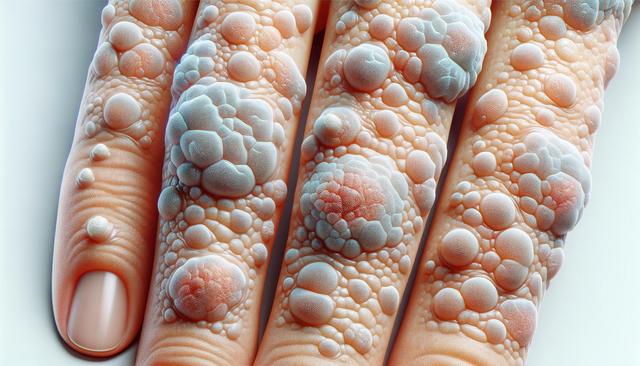What is Plaque Psoriasis?
Plaque psoriasis is the most common form of psoriasis, accounting for about 80% to 90% of cases. It appears as raised, inflamed, and scaly patches on the skin, often causing discomfort or itching. These patches, known as plaques, can vary in size and typically appear on the elbows, knees, scalp, and lower back. The condition is not contagious, meaning it cannot be spread from person to person. Researchers believe that plaque psoriasis originates from a malfunction in the immune system, where skin cells are produced too rapidly, leading to a buildup on the surface.
Key characteristics of plaque psoriasis include:
- Thick, red patches of skin
- Flaky, silver-white scales
- Dry, cracked skin that may bleed
- Itching and burning sensations
- Soreness around the affected areas
Understanding the nature of plaque psoriasis is essential for effective management and improving quality of life for those affected.
Common Causes and Risk Factors
While the exact cause of plaque psoriasis remains unknown, several factors are believed to contribute to its development. The condition is thought to stem from a combination of genetic predisposition and environmental triggers. If someone in your family has psoriasis, your risk of developing it increases. Additionally, certain triggers can cause flare-ups or worsen the condition.
Common risk factors and triggers include:
- Genetic factors: Having a family history of psoriasis
- Infections: Such as strep throat or skin infections
- Stress: Emotional or physical stress can exacerbate symptoms
- Injury to the skin: Cuts, scrapes, or sunburn
- Medications: Certain drugs like beta-blockers or lithium
- Weather: Cold, dry weather can worsen symptoms
Recognizing these factors can help individuals take proactive steps to mitigate flare-ups and manage their condition more effectively.
Recognizing Symptoms Early
Early detection of plaque psoriasis can lead to better management and less discomfort over time. Symptoms can vary from mild to severe, and not everyone will experience the same signs. The hallmark symptom is the development of thickened plaques on the skin, often accompanied by scaling. In some cases, psoriasis may also cause changes to the nails, such as pitting or abnormal growth.
Additional signs to watch for include:
- Red patches covered with thick, silvery scales
- Dry and cracked skin that may bleed
- Itchiness, burning, or soreness in affected areas
- Stiff and swollen joints (in cases where psoriatic arthritis develops)
Monitoring the skin for these symptoms and seeking medical advice early can help individuals manage the condition more successfully and avoid complications.
Treatment and Management Options
While there is no cure for plaque psoriasis, a range of treatments can help control symptoms and improve the skin’s appearance. Treatment plans are often tailored to the severity of the condition and how much it affects an individual’s daily life. Mild cases may be managed with topical treatments, while more severe cases might require systemic medications or phototherapy.
Common treatment options include:
- Topical treatments: Corticosteroids, vitamin D analogs, and moisturizers
- Phototherapy: Controlled exposure to ultraviolet light
- Systemic medications: Pills or injections that affect the whole body
- Lifestyle changes: Stress management, healthy diet, and avoiding known triggers
Working closely with a healthcare provider can help identify the most effective treatment strategy and make necessary adjustments as the condition evolves.
Living with Plaque Psoriasis
Managing plaque psoriasis involves more than just treating the skin; it also requires attention to overall well-being. Individuals living with this condition often benefit from a holistic approach that includes physical, emotional, and social support. Building a supportive network, engaging in stress-reducing activities, and adopting healthy lifestyle habits can significantly enhance quality of life.
Helpful tips for daily management include:
- Keeping the skin moisturized to reduce dryness and scaling
- Using gentle skincare products to avoid irritation
- Following a balanced diet rich in anti-inflammatory foods
- Practicing stress-relief techniques like yoga or meditation
- Joining support groups to connect with others facing similar challenges
By embracing a comprehensive approach to care, individuals with plaque psoriasis can lead fulfilling lives and maintain better control over their symptoms.












